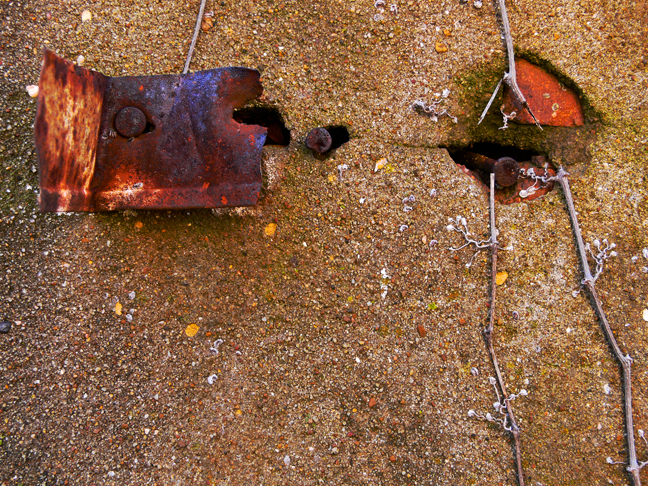
Things are broken, worn out, need to be fixed, possibly replaced. But with so many crises in the news these days it's easy to feel overwhelmed. Tuning out and disconnecting is one solution, and at times that may even be a wise and healthy choice for without personal health one has less ability to effect outcomes. But this is a time when human activity is having huge consequence on not only climate and environment, but on whether on not we as a species will be able to continue developing some sort of responsible advanced civilization for ourselves instead of falling back into primitive continuous tribal warfare. No, this is a time when we need to rally our mental resources and consciously select from the choices before us a set of ideas that seems to provide the most workable path forward, not only for ourselves and for those we care about, but for our entire species. The world will continue to exist in some form no matter what we do. Whether we will be able to maintain a viable place for ourselves in that world is another story. That is the problem that so vividly confronts us. Each of us, pursuing our own best interests, have needs. Those needs draw upon the world's resources. When those resources become scarce we find ourselves in competition with our fellows. The possibility for conflict arises. Somebody wins and somebody loses. That is what's known as a zero-sum game. Such games underlie almost all of human conflict and strife. And the consequence of such games is the stratification of society into "haves" and "have nots". Capitalists take a look at that reality and think, "hey, we can make use of that dynamic." And what they do is offer the "have nots" a chance to earn a bigger share of the resources they need and want in exchange for work. As long as rewards are reliably distributed, the economy churns along smoothly and society is more or less stable. Problems for our species arise when neither capitalists nor laborers pay any attention to the consequences of their draw on resources, production of waste, or growth in population. The zero-sum game being played then is with mother nature. And though we think we may be winning for the time being, in the end mother nature is going to take our cake right back out of our hands and mouths. Scientists have been warning of those consequences for decades and neither capitalists nor laborers seem to be paying any mind. But why should they? The economy is churning along and statistics show people are continually getting richer all across the globe. But accountants have not been tallying up the losses to mother nature nor projecting what it will eventually cost us when she snatches back those losses. In fact, denial of that underlying accounting reality is ubiquitous. Witness the current budget stalemate in Washington D.C. A different kind of capitalist might take a look, not at exploitable desire in the eyes of the "have nots", but at the natural productivity of our physical world and think "hey, with understanding we could milk nature's productivity and not go wanting." But doing so would take a whole different set of profit and loss equations than most capitalists are accustomed to employing. "Sustainability" is the label for that new kind of thinking. In it's simplest terms it means "take what is offered, and nothing more", not "take as much as you can get away with". The only problem is that so few of our citizens are natural capitalists, much less deep thinkers. Rather, most are no different than cows munching grass, totally preoccupied with feeding their appetites. They do not think, they do not consider long term big picture consequences. But they are exploitable. Could enlightened capitalists put the exploitable masses to work harvesting nature's resources in a sustainable manner? Could a calculation be made that suggests an optimum number for human population that does not overtax the natural productivity of our planet? And can we coax our populations toward that number by offering them an ever increasing higher quality of life fueled by curiosity, patience, knowledge, and creativity? Or, is the got-to-have-it-now zero-sum game so engrained in our unthinking genes that it will eventually irreversibly fragment and destroy us as an organized civilized species? |
• Posted: Apr 07, 2011 16:24:07
• Comments Welcome
• Vote CoolPhotoblogs
• Purchase a Print
• Share
Thursday, April 2nd, 2009 Alton TX USA |